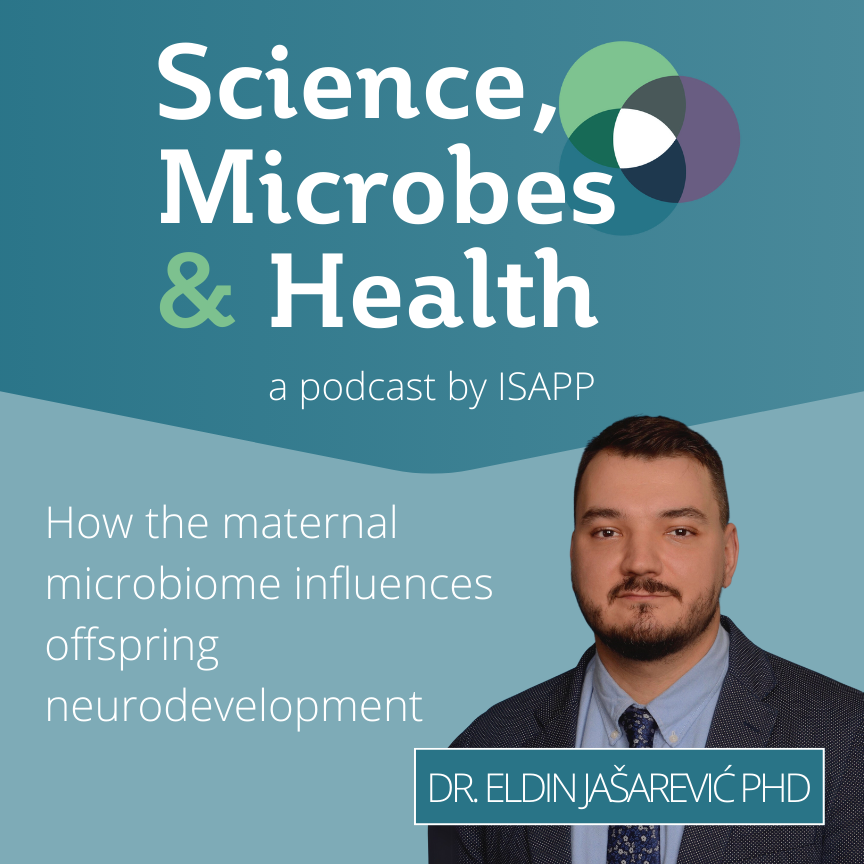Nov 15 2024 30 mins 1

This episode features Dr. Eldin Jašarević PhD from University of Pittsburgh discussing research that investigates how maternal signals influence the general development and neurodevelopment of the offspring. Dr. Jašarević’s particular interest in this field stems from his family’s journey as refugees from Bosnia who found their way to the US. His lab studies how maternal stress or diet signals the developing brain to facilitate a lasting change, focusing on the role of the gut and vaginal microbiomes. His work in mouse models has shown that even mild stressors early in pregnancy trigger a gut microbiome change that lasts, but the challenge is to figure out whether the microbiome is responsible for the lasting effect. More human intervention studies are needed to understand how these findings may benefit pregnant women and the eventual development of their children. Regarding brain development, germ-free mice have brains that grow and develop differently from mice with an intact microbiome: for example, microbial metabolites are involved in key epigenetic processes for the brain. In general, the field may be moving toward understanding host-microbial interactions and dispersal of microbial-derived metabolites in pre-conception health and fertility, to eventually enable earlier intervention.
Episode abbreviations and links:
- Mouse study using a c-section model to show how, with maternal stress, the vaginal microbiome signals to the offspring’s brain and gut: The maternal vaginal microbiome partially mediates the effects of prenatal stress on offspring gut and hypothalamus
- Review describing two overlapping processes by which the maternal (gut and vaginal) microbiota affects offspring development and health: Prenatal and postnatal contributions of the maternal microbiome on offspring programming
- Preprint accounting for why germ-free mice have a shortened reproductive lifespan: The microbiota extends the reproductive lifespan by safeguarding the ovarian reserve
About Dr. Eldin Jašarević PhD:
Eldin Jašarević is an Assistant Professor in the Departments of Obstetrics, Gynecology and Reproductive Sciences and Computational and Systems Biology at the University of Pittsburgh, and a Principal Investigator at Magee-Womens Research Institute. He received his Ph.D. in Neuroscience from the University of Missouri, where he worked at the Thompson Center for Autism and Neurodevelopmental Disorders. His predoctoral research focused on the role of maternal lifetime experiences on brain development. During his postdoctoral fellowship with Dr. Tracy Bale at the University of Pennsylvania, Eldin defined mechanisms by which disease susceptibility can be transferred across generations via the microbiome. His current research focuses on understanding how microbial-derived signals act as regulators of development, with particular emphasis on the germline. His contributions to the field have been recognized through his selection as a Kavli Fellow of the National Academy of Sciences, a Burroughs Wellcome Fellow, and through research funding from NIMH, NICHD, and NIDDK.
The post How the maternal microbiome influences offspring neurodevelopment, with Dr. Eldin Jašarević PhD appeared first on International Scientific Association for Probiotics and Prebiotics (ISAPP).